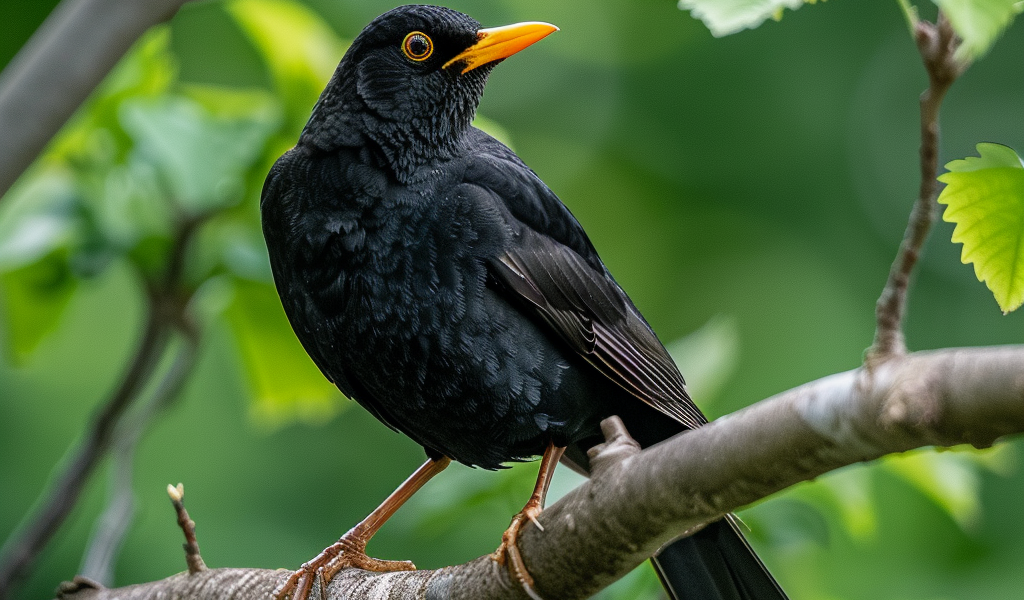The beloved blackbird, known for its sweet song that has enchanted Britons for centuries, is now facing a concerning decline in numbers, particularly in Greater London and southern England. Experts from the British Trust for Ornithology (BTO) are calling on the public to participate in a survey to investigate the reasons behind this decline.
The decline in blackbird populations is believed to be linked to the Usutu virus, which was first detected in the UK in London in 2020. This virus, potentially fatal to blackbirds, is believed to be spreading across south-east England after originating in South Africa and spreading through mainland Europe.
Climate breakdown is thought to play a significant role in the spread of the disease, as native UK mosquitoes can transmit the virus more effectively in warmer weather conditions. In London alone, blackbird numbers saw a 50% decrease in 2020 compared to 2019, with a partial recovery but still remaining 32% lower than in 2019. Overall, blackbird populations have decreased by 18% across the UK since the 1970s due to factors such as habitat loss.
Prior to the emergence of the Usutu virus, blackbird numbers were already showing a slight decline in London. Scientists are now investigating if there are additional factors contributing to this decline and are exploring potential solutions to help reverse the trend.
Dr. Hugh Hanmer, a senior research ecologist at BTO, highlighted the concerning trend, stating, “Blackbird numbers have been on the decline in Greater London, with a more pronounced decrease observed since 2020 coinciding with the detection of the Usutu virus. This decline is now being observed in southern England as well, unlike other regions in the UK. The BTO survey aims to unravel the reasons behind this shift and to determine any association with the emergence of the Usutu virus. Understanding blackbird behavior in urban settings is crucial to devising strategies to mitigate the decline.”
Researchers are keen to investigate if similar patterns are observed in other major cities across the UK and to assess differences between rural and urban areas. By comprehensively studying the blackbird population and their habitats, experts hope to identify effective measures to conserve this iconic species.





